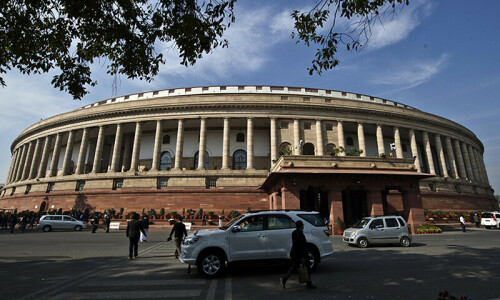India on Monday implemented an overhaul of colonial-era criminal laws, praised as a “watershed” movement by the top judge but which critics said could worsen an already glacially slow pace of justice.
Amit Shah, the interior minister, said the codes would help India “become the world’s most modern justice delivery system”.
The three overhauled laws — the penal code and codes relating to criminal procedure and evidence — were passed last year during India’s previous parliament, but only came into effect on Monday.
Chief Justice D. Y. Chandrachud said they “signify a watershed moment for our society”.
Laws dealing with sexual assault have been strengthened, while a previous law criminalising sodomy has been removed. Key changes include the amount of time police can hold a suspect rising from 15 days to 60, and, in some special cases, up to 90.
Previously it was up to a judge to decide if a case could proceed to trial, but the new laws bolster the power of the police to decide, something supreme court lawyer Nipun Saxena criticised. “Judicial functions cannot be transferred to police,” Saxena said.
The code has also been modernised — requiring video recordings to be made at the scene of serious crimes, as well as updating admissible digital evidence. But critics say the new laws could create confusion, as they will run parallel to those on trial charged under the previous system.
India already has a notoriously slow justice system, with millions of cases pending in the courts at any time. Saxena warned the changes could increase the number of cases awaiting trial by “30-40 per cent”.
Opposition parties said the laws were passed when more than 100 lawmakers were suspended from the house, meaning key issues were not debated.
“Many crucial safeguards have been omitted completely,” Saxena said, adding the new laws violate “at least four articles of the constitution and many important judgements of the Supreme Court”.
He said these relate to procedural safeguards, protection against illegal detention, and laws against self-incrimination.
At independence in 1947, India inherited the 19th-century penal code imposed by British rule, although it has been overhauled by previous parliaments.
“The claim that the changes decolonialise the criminal procedure code is spurious,” Saxena said.
The first person charged under the new codes was a street vendor blocking a footbridge in the capital New Delhi, The Times of India reported.














































Dear visitor, the comments section is undergoing an overhaul and will return soon.